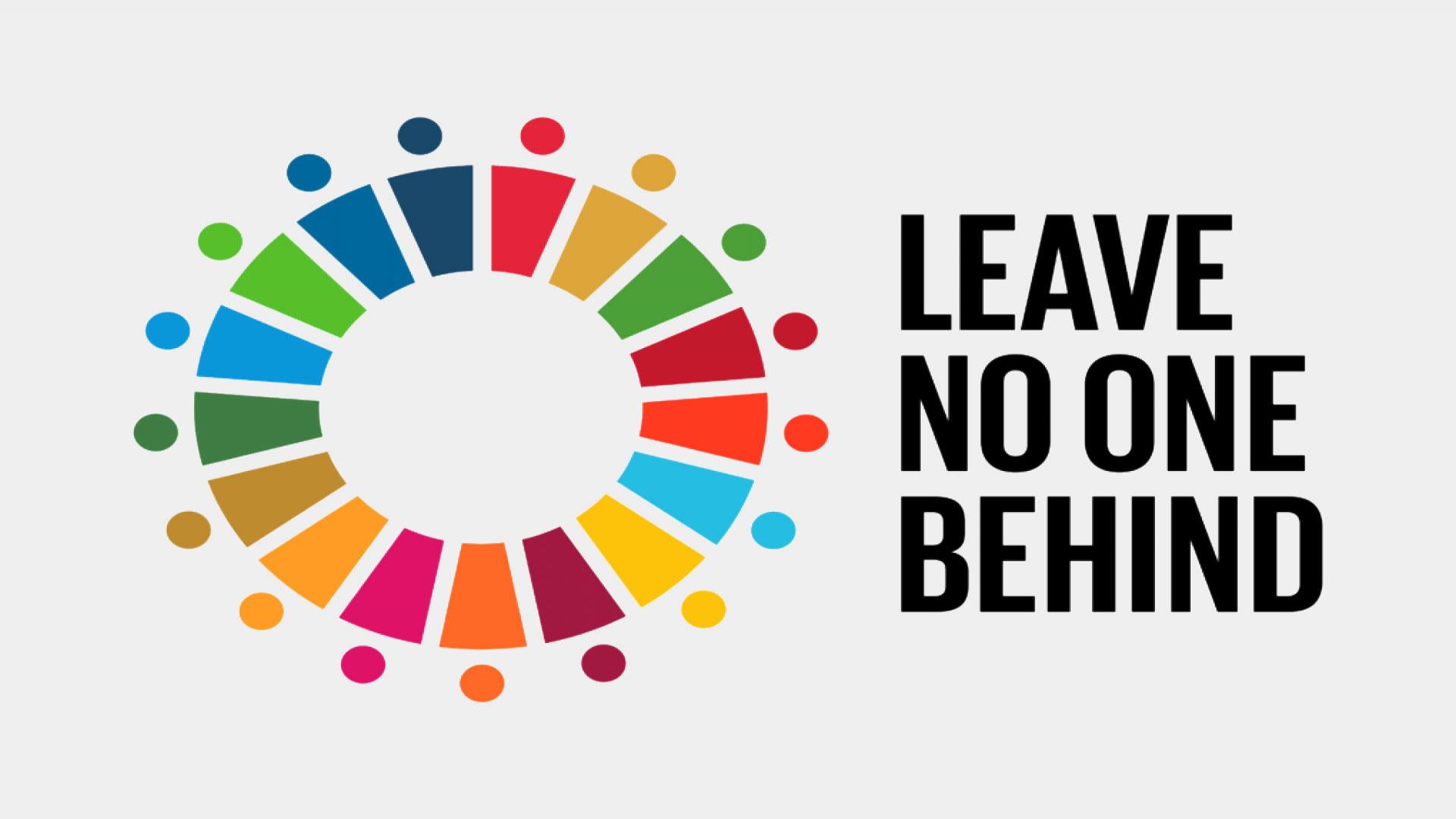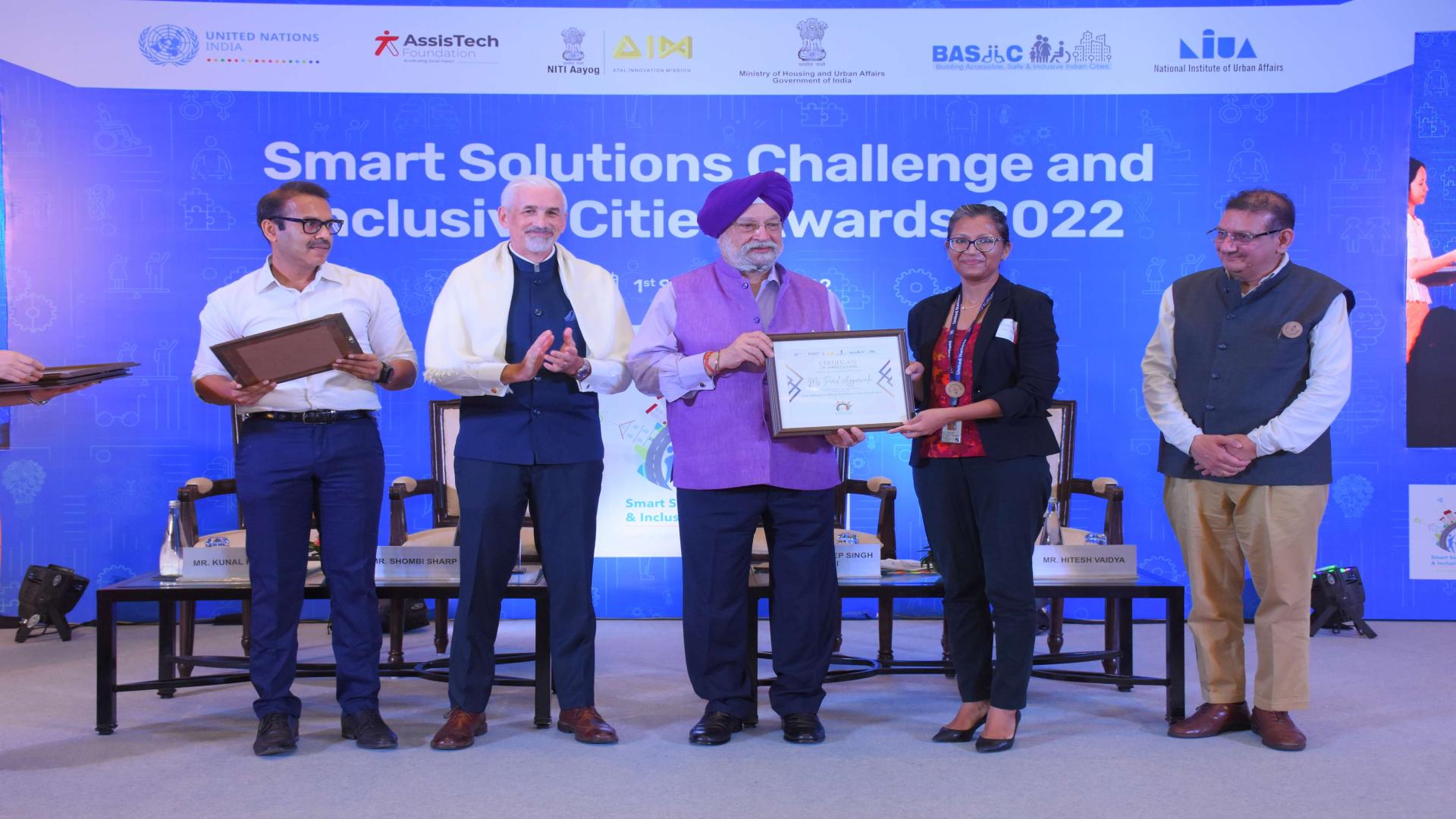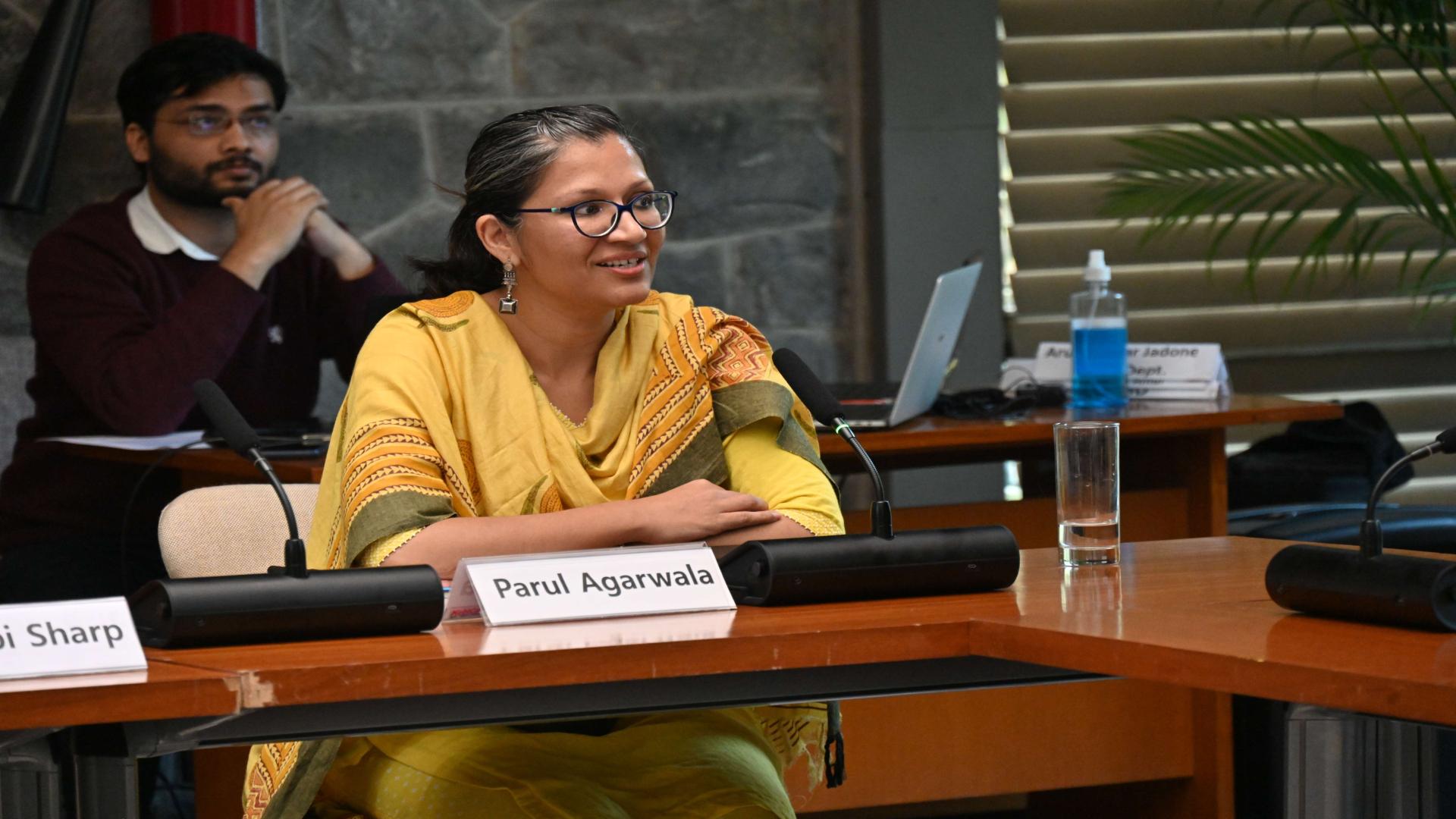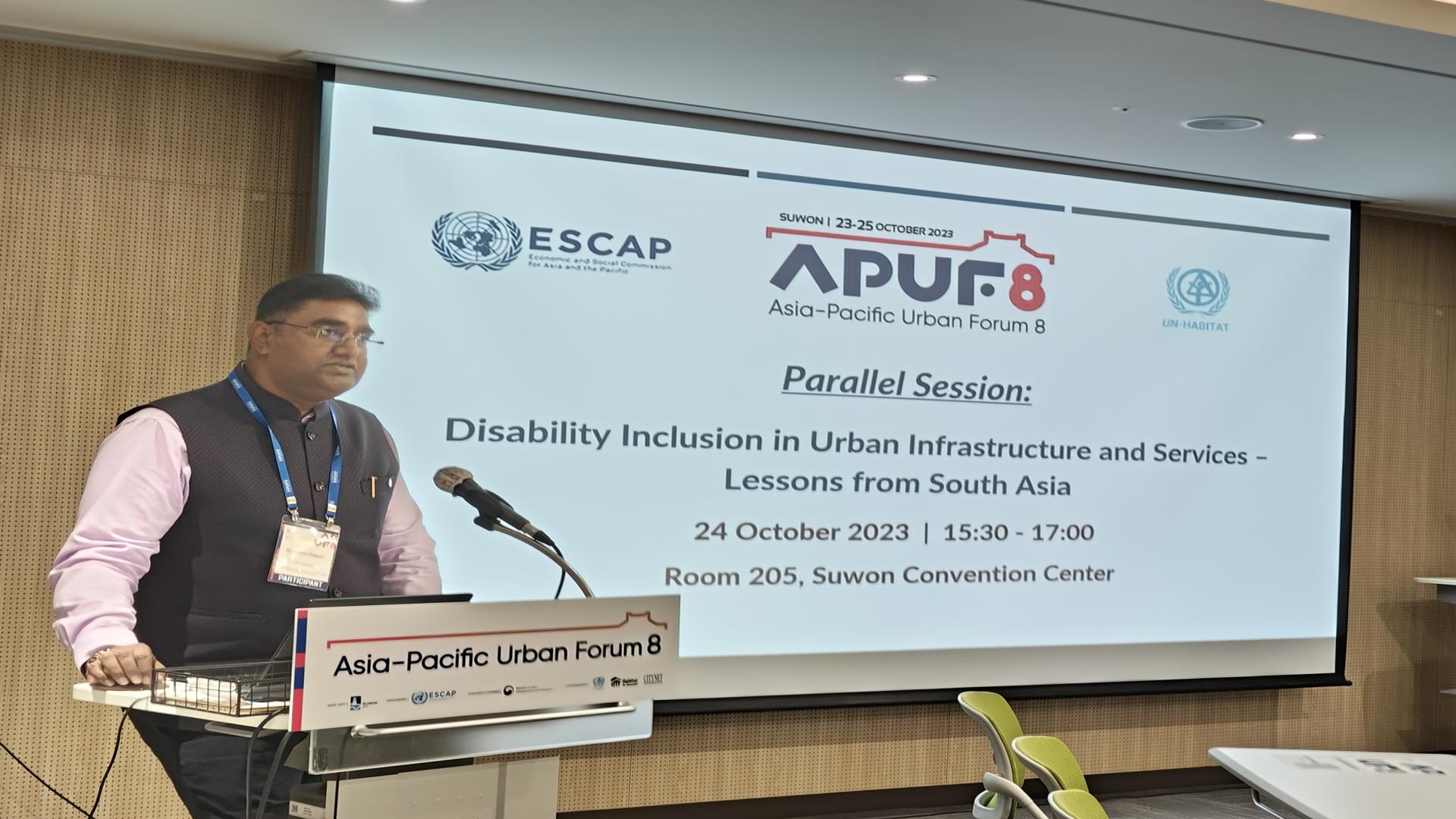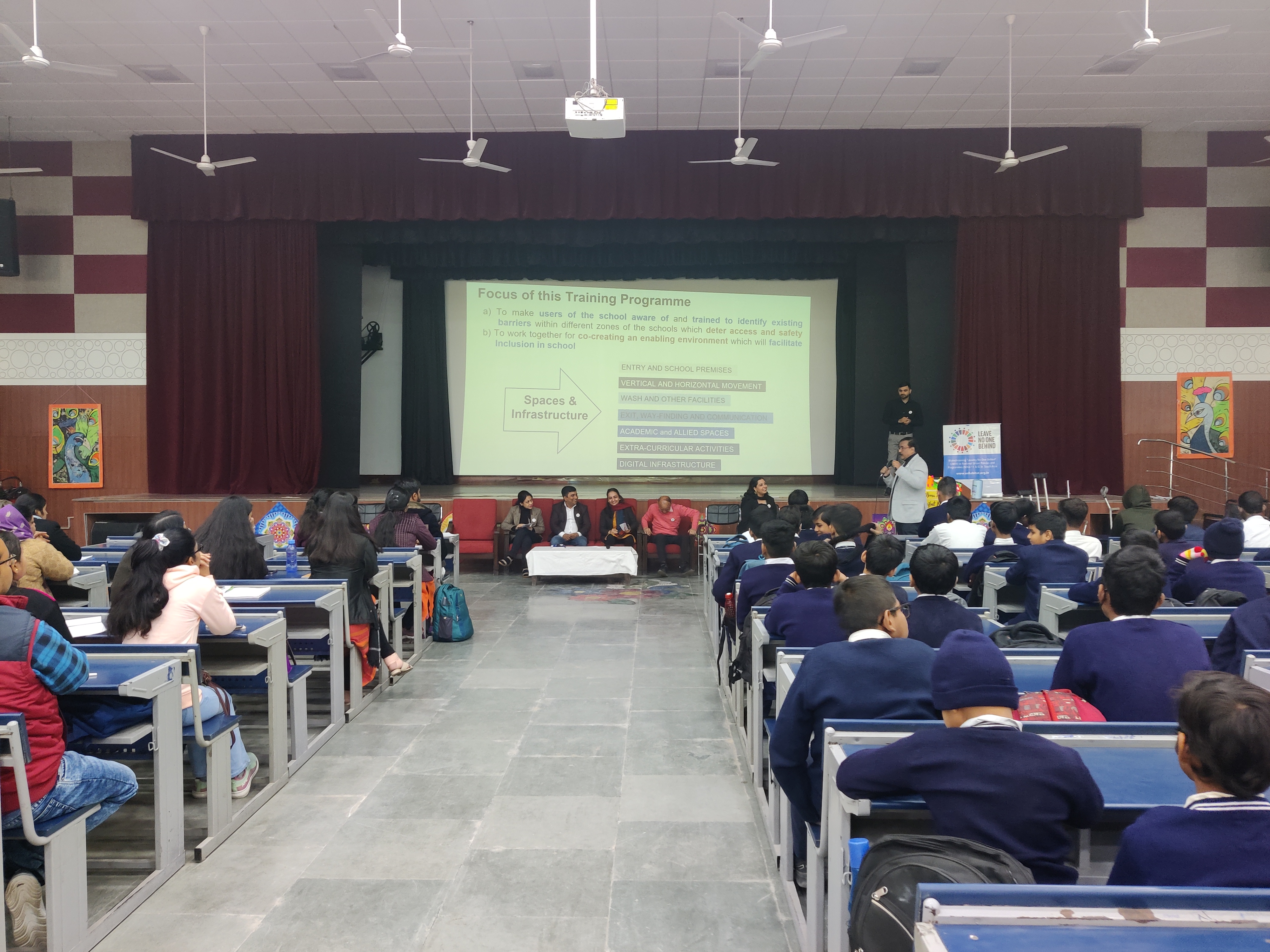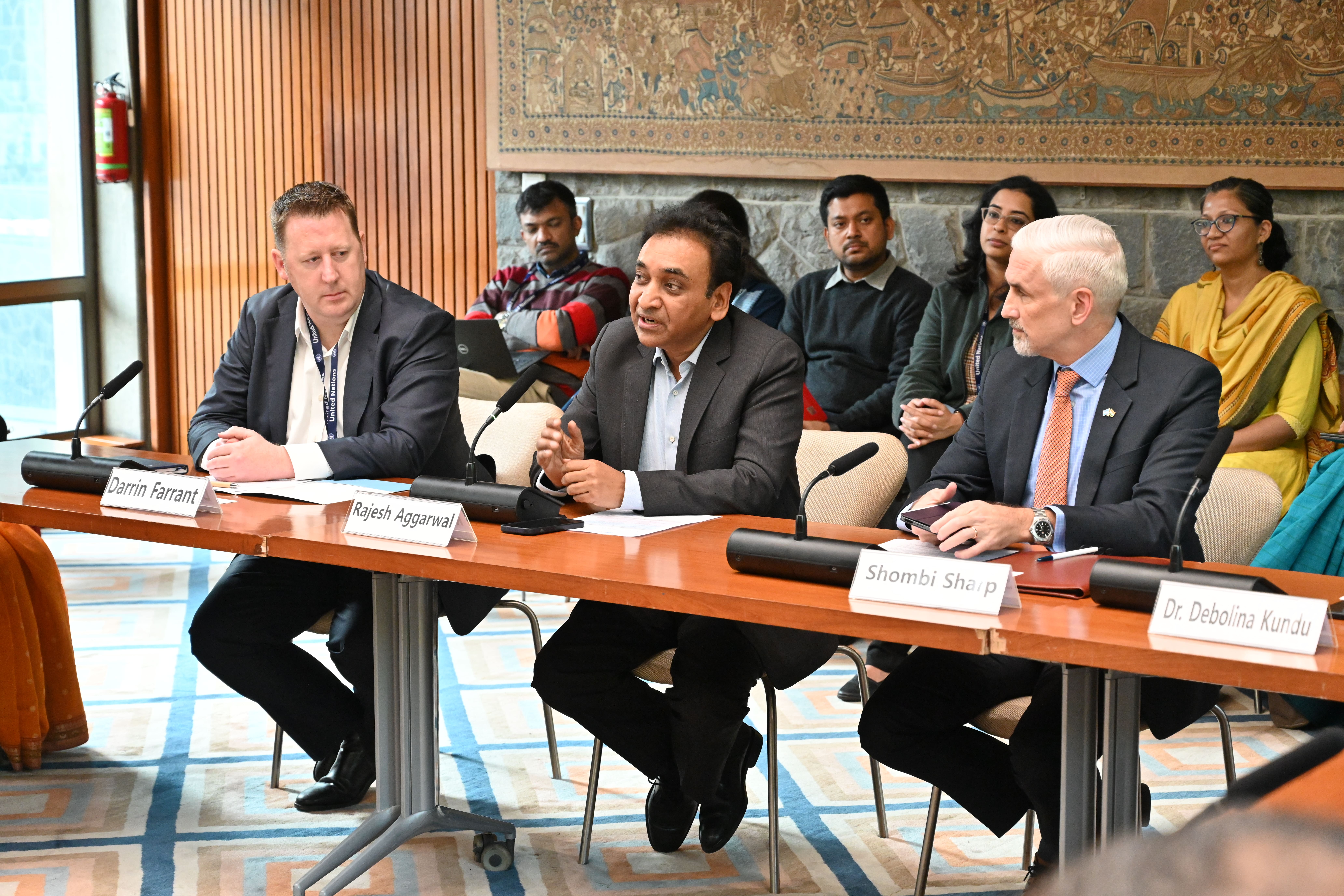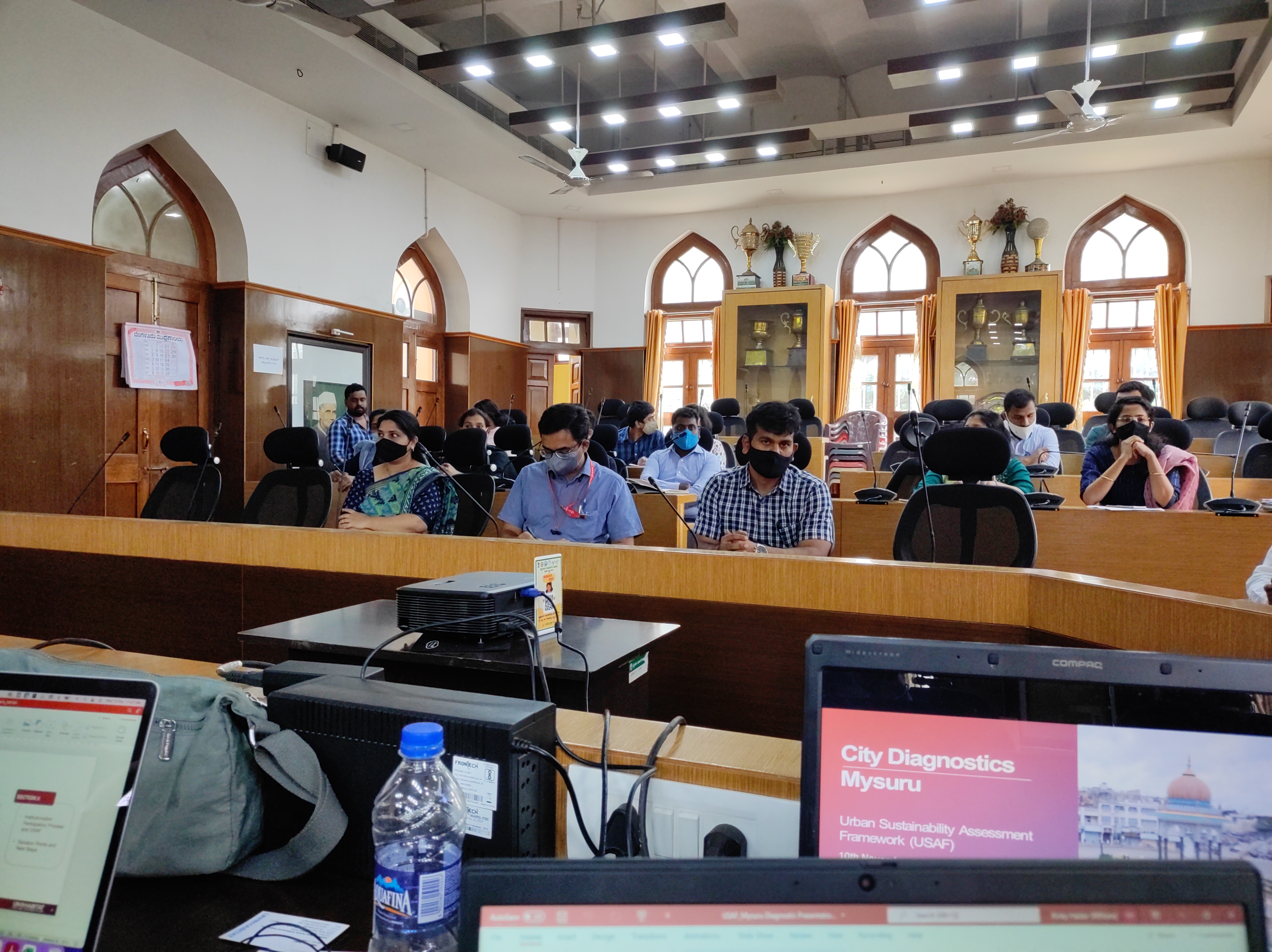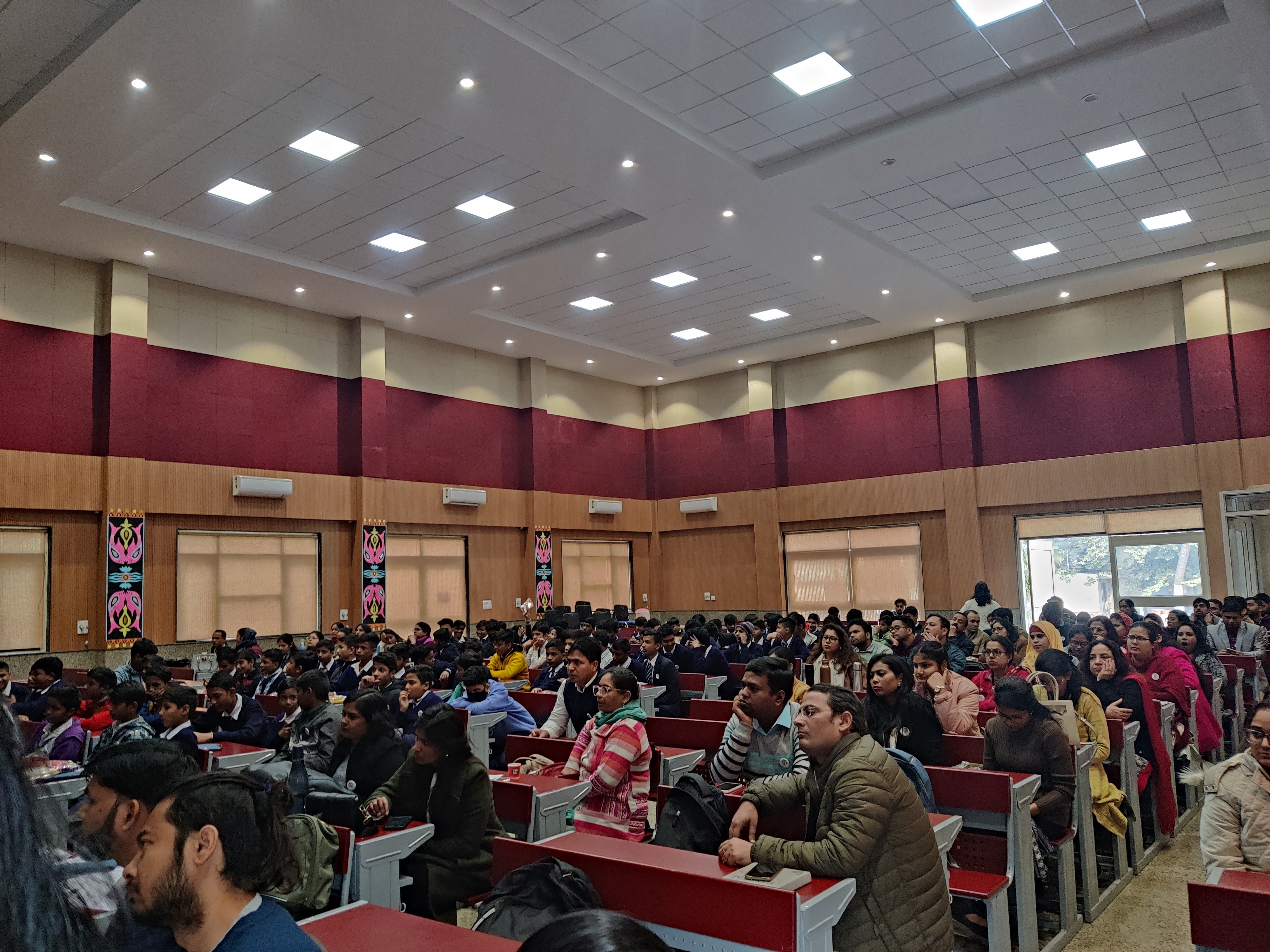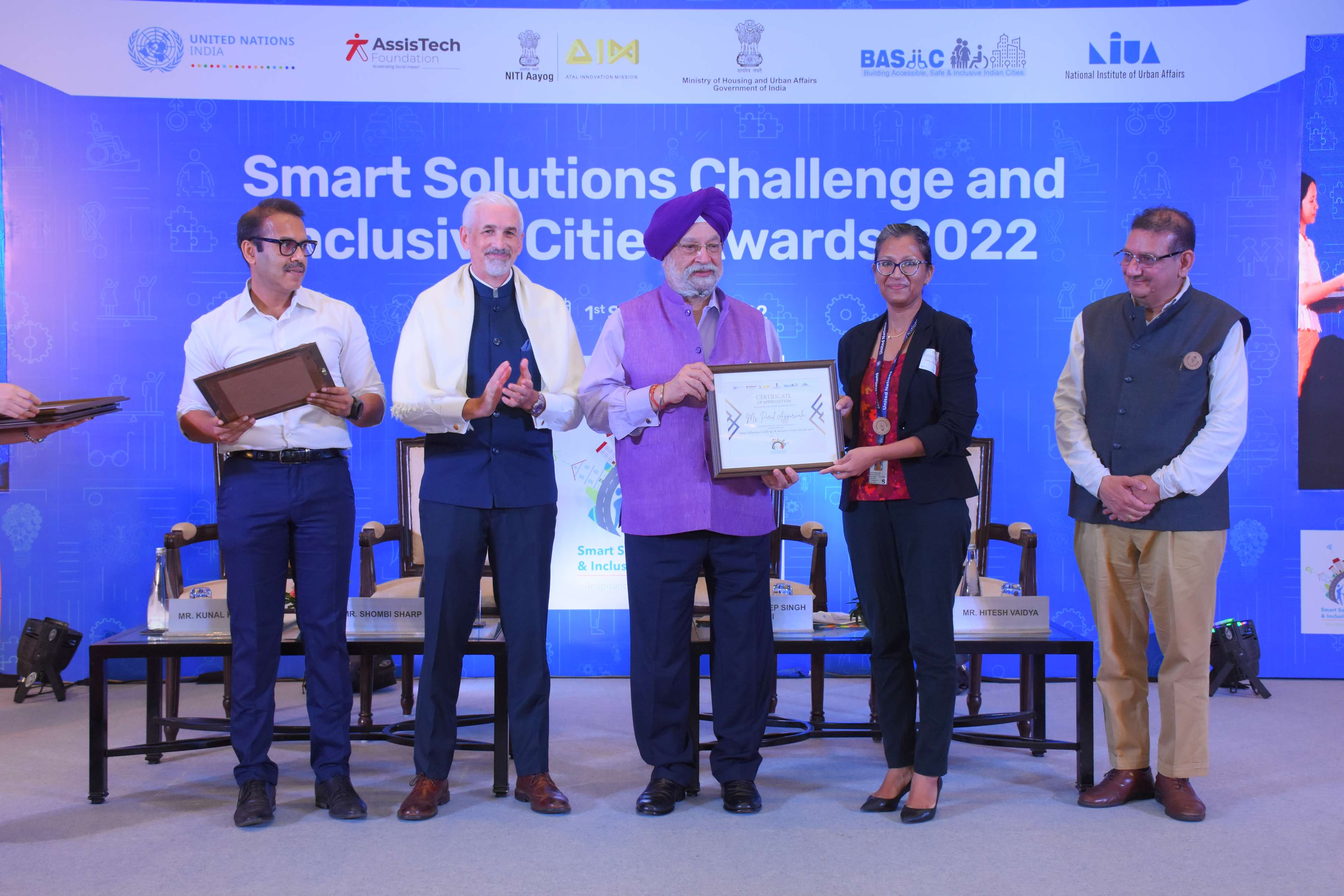Mainstreaming Leave No One Behind (LNOB) in Urban Polices and Programmes in South Asia
Initiated in 2020, the project draws on the collective expertise of UN-Habitat, UNESCAP, and UN-OICT to use the convening power for addressing the complex, cross-sectoral challenges facing South Asian urban policymakers. The focus has been on mainstreaming concepts of inclusiveness, safety, and accessibility into urban policy and planning frameworks to ensure that no one is left behind.
Through this project, the inclusion of persons with disabilities and other marginalised communities is being strengthened in fundamental sectors of urban development, under SDG 11 – Sustainable Cities and Communities for integrated urban development and SDG 6 – Clean Water and Sanitation. A regional knowledge partnership network has been established by engaging national, sub-national, and local governments and entities to develop and exchange knowledge resources, including policy briefs, reports, and toolkits, conduct urban data analyses, sensitize stakeholders through capacity building workshops, and disseminate good-practice approaches.
Project Countries: Bangladesh, India, Nepal, and Sri Lanka
Challenges
Limited consideration of persons with disabilities in urban policy and planning
The Asia-Pacific region is home to more than 750 million persons with disabilities. Persons with disabilities experience multiple and intersecting forms of social, economic, and political exclusion, which leads to deprivation in access to education, clean water and sanitation, shelter, and wasted human and productive potential. The strains of institutional (affordable housing, services, land rights), structural (gender, age, ethnicity), and spatial (regional imbalance, mobility, congestion, recreation) inequalities are pushing the vulnerable, marginalized, and impoverished into intergenerational cycles of exclusion. Persons with disabilities are often not ‘planned for’ as the default intended users and inhabitants of cities and its public spaces, which is reflected in the planning, designing and maintenance of urban spaces and facilities. This is exacerbated by the lack of participatory and people-centric planning processes, as well as the absence of accurate disaggregated sex and disability data, especially concerning women and girls with disabilities. Accessibility initiatives in India often retain a narrow focus towards physical, and largely perceivable, disabilities such as locomotor disability, with limited emphasis on a cross-disability perspective.
Challenges of implementation and inter-department coordination
Focusing on the South Asian region, a key challenge is ensuring safe and inclusive cities in the context of rapid urbanization. Being the globe’s most populous region, the scale of urban growth implies that policymakers face challenges extending urban services and infrastructure across vast urban areas and populations. In this context, the missing link in the urban story is the inclusive and equitable growth wherein persons with disabilities are not adequately represented at various levels of decision-making in urban planning and governance. There is also a lack of coordination between different government departments, across different hierarchical levels, and they continue to operate in silos. Due to limited knowledge dissemination, resource allocation, limited disaggregated data collection and management, and capacity constraints, the implementation of schemes and incentives catered to persons with disabilities becomes fragmented.
Limited sensitisation, awareness, and capacity-building
There is a limited sensitisation, awareness, and technical capacity in understanding the diverse requirements of persons with disabilities, and how these requirements would be incorporated in the urban development agenda. This holds true both in the public sector as well as among private sector players involved in ground-level implementation. Moreover, the lack of digital accessibility is a serious concern for persons with disabilities, especially affecting women and girls with disabilities, already impacted by the digital gender gap. This was also felt during the pandemic, where access to essentials was contingent on access to digital ICT and services.
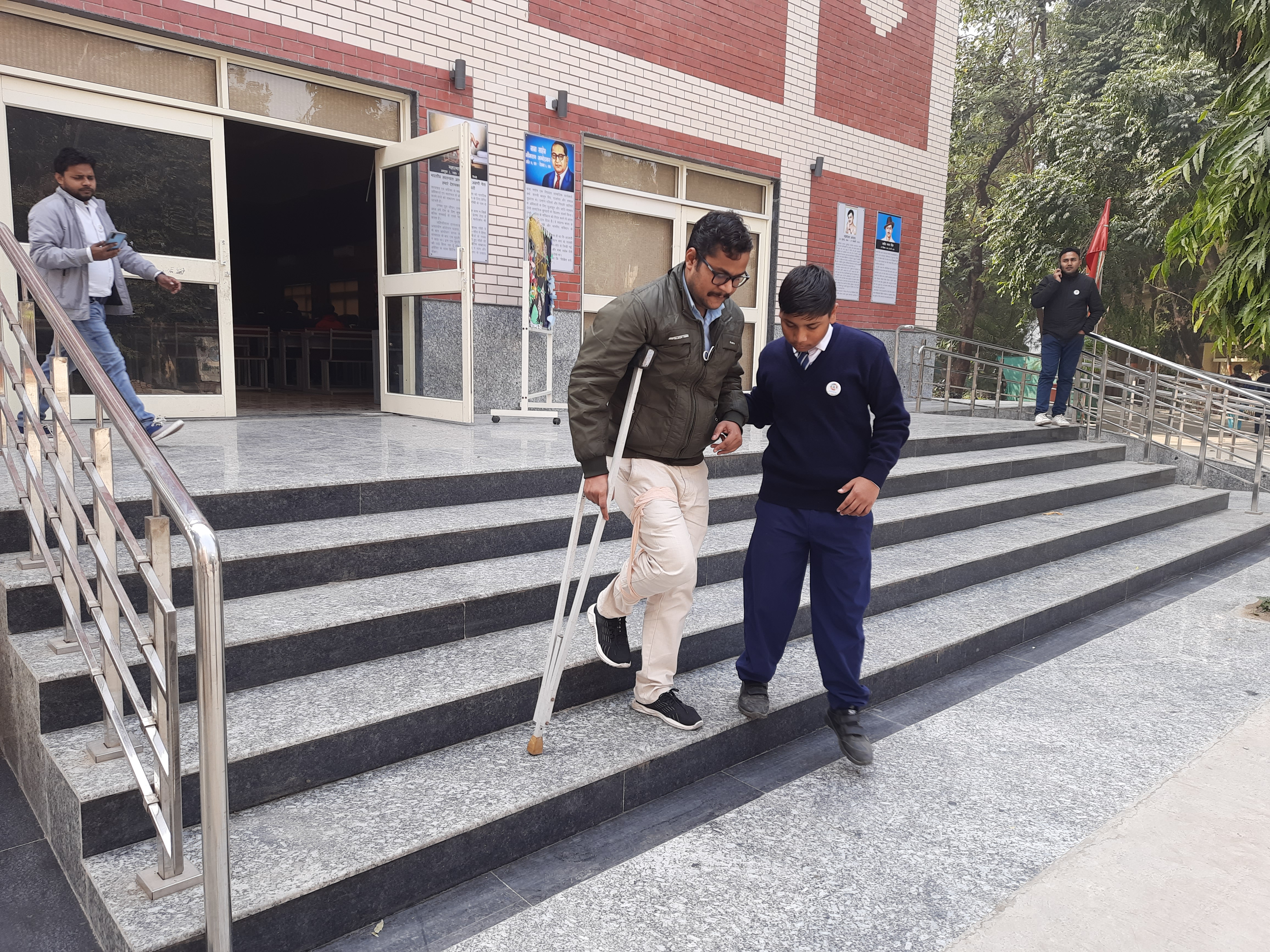
How to respond to them?
Regional Impact
Strengthened regional network of governments and local urban institutions to promote and mainstream LNOB in the urban development agenda.
National Impact
Improved enabling environment within countries to align national policies and instruments to meet LNOB goals with focus on safety, inclusiveness, and accessibility for persons with disabilities.
Local impact
Self-sustainable local government capacity for stronger vertical integration and reiterative feedback loop to national policies/frameworks through evidence-based monitoring of impact at local level.

What have we achieved so far?
Stakeholder Engagement
Engaged in cross-country collaboration to establish a multi-stakeholders' network, including across national and local governments, policy and sector experts, and organizations of persons with disabilities.
Policy Advocacy
Conducted reviews and prepared policy recommendations for national and local governments to focus on disability inclusion in cities.
Digital Innovation
Facilitated Smart Solutions Challenge & Inclusive Cities Awards on a dedicated digital platform for encouraging start-ups and local governments to develop innovative solutions.
Capacity & Skill Building
Conducted sensitization workshops in schools for parents, teachers, special educators, school management authorities; organized accessibility audit trainings for officials and technical experts; and conducted peer-review meetings and stakeholder consultations.
Knowledge-Sharing
Developed and disseminated several regional and national policy review documents, e-learning modules, guides, and toolkits for urban practitioners and technical experts.
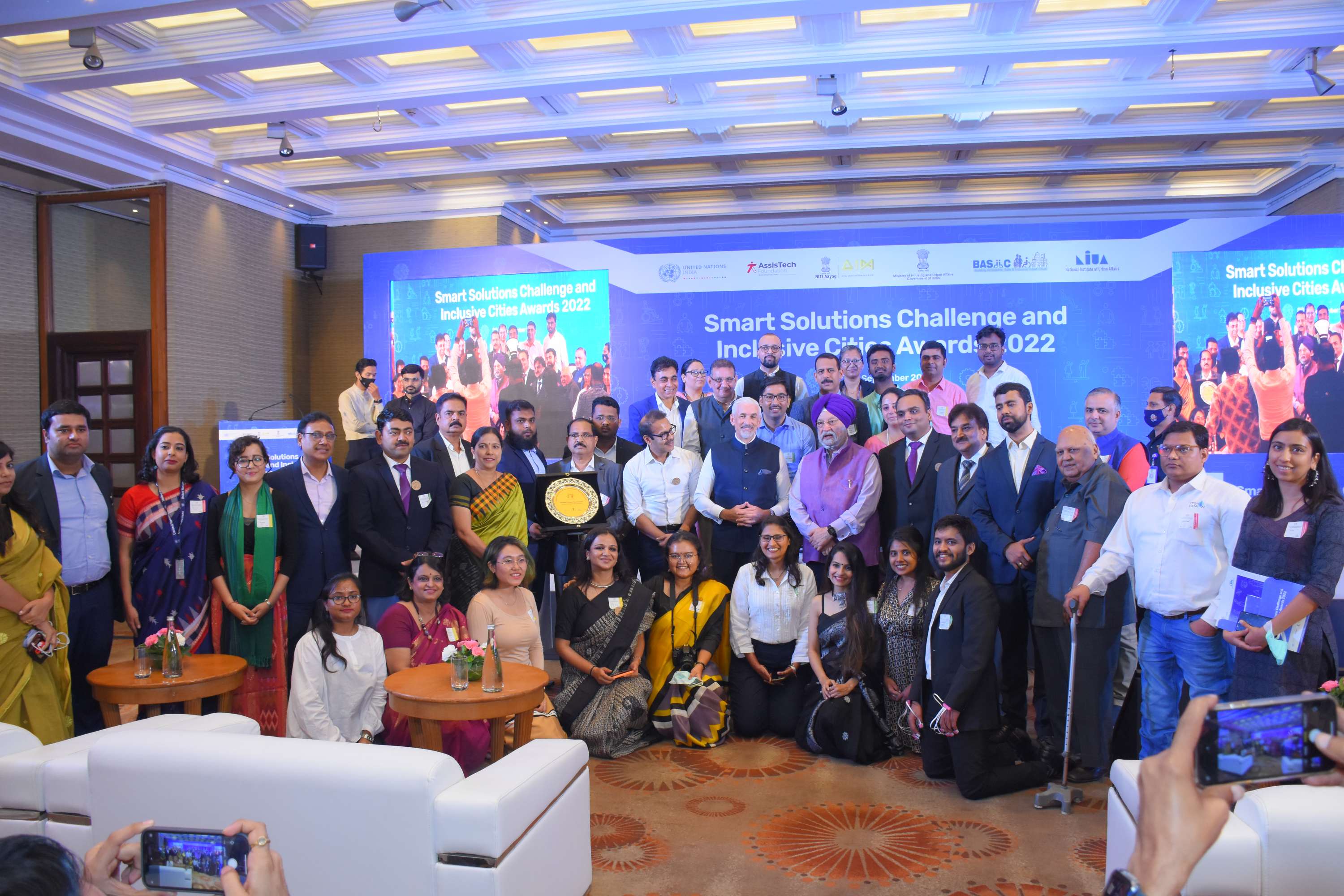
Donors and Partners
This project is funded with the support of United Nations Department of Economic and Social Affairs (UNDESA). The project is led by UN-Habitat, in collaboration with United Nations Economic and Social Commission for Asia and the Pacific (UNESCAP) and United Nations Office of Information and Communications Technology (UNOICT).
